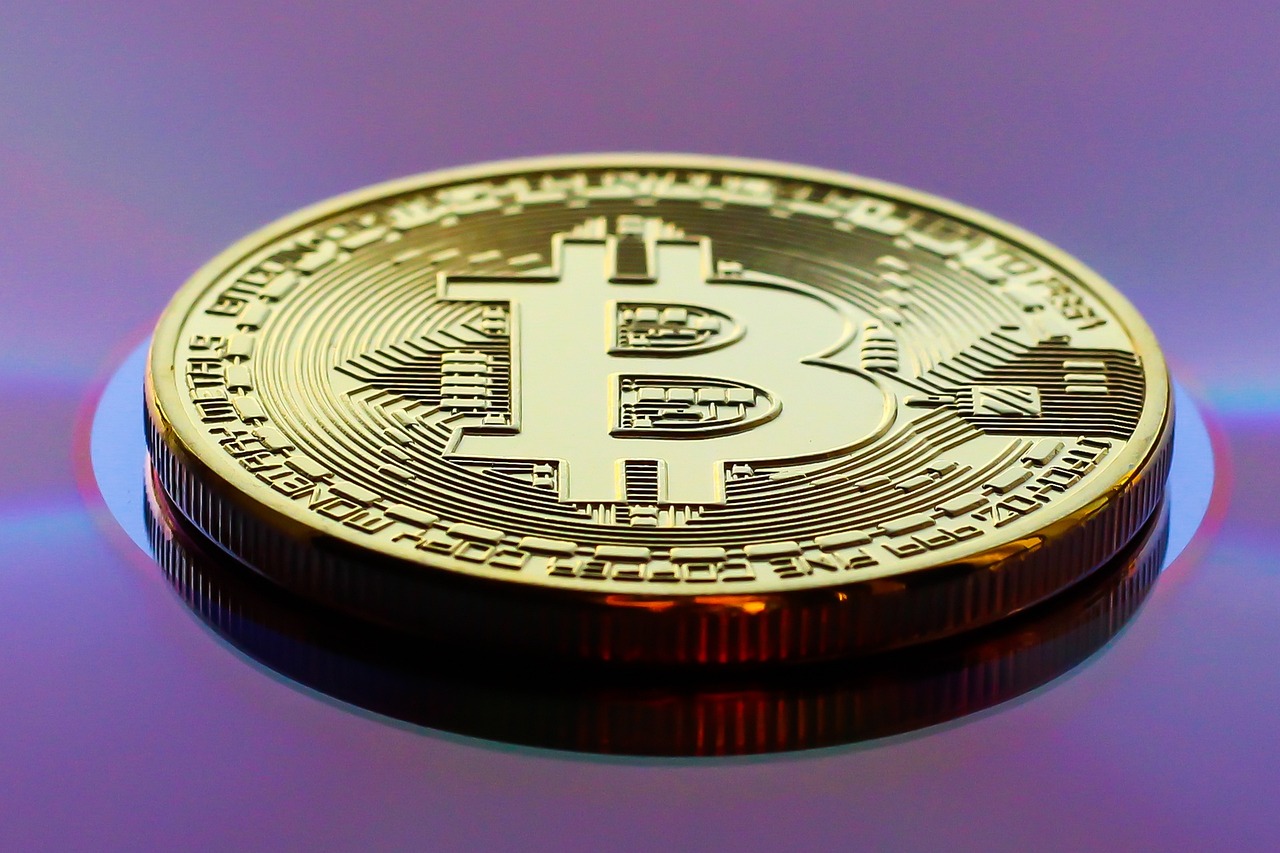How to Ensure Compliance with International Sanctions in Crypto
In today's fast-paced digital world, cryptocurrencies have emerged as a revolutionary force in finance, but with great power comes great responsibility. As businesses and individuals dive into the crypto space, they must navigate a complex web of international sanctions that can significantly impact their operations. Understanding how to ensure compliance with these sanctions is not just a legal obligation—it’s a crucial step in maintaining trust and integrity in the financial ecosystem. This article will explore the intricacies of adhering to international sanctions, offering practical strategies and insights to help you stay on the right side of the law while engaging in cryptocurrency transactions.
International sanctions are measures imposed by countries or international organizations to influence or restrict the behavior of a particular nation or group. These sanctions can target various sectors, including finance, trade, and technology, and they often aim to promote peace, security, and human rights. In the cryptocurrency industry, these sanctions can pose unique challenges due to the decentralized and often anonymous nature of digital currencies.
For businesses operating in the crypto space, compliance with international sanctions is paramount. Non-compliance can lead to severe penalties, including hefty fines and reputational damage. Moreover, even unintentional violations can result in significant legal repercussions. Thus, understanding the nature and scope of these sanctions is the first step in crafting a robust compliance strategy.
Several regulatory bodies oversee the enforcement of international sanctions, each with its own set of rules and responsibilities. These organizations work to ensure that stakeholders in the crypto sector are aware of their obligations and the potential consequences of non-compliance. Some of the key regulatory bodies include:
- Office of Foreign Assets Control (OFAC): This U.S. Treasury Department office administers and enforces economic and trade sanctions based on U.S. foreign policy and national security goals.
- European Union (EU): The EU imposes sanctions to promote international peace and security, often in response to geopolitical tensions.
- Financial Action Task Force (FATF): This intergovernmental body develops policies to combat money laundering and terrorist financing, including guidelines for the crypto industry.
By understanding the roles of these regulatory bodies, businesses can better navigate the complex landscape of international sanctions and ensure compliance.
The Financial Action Task Force (FATF) has established guidelines that are crucial for combating money laundering and terrorist financing in the cryptocurrency space. These guidelines are designed to assist countries in implementing effective measures to mitigate risks associated with digital currencies. Compliance with FATF standards is essential for businesses that want to operate legally and ethically in the crypto market.
Among the key recommendations from FATF are the following:
- Identifying and assessing risks associated with virtual assets.
- Implementing adequate customer due diligence measures.
- Reporting suspicious transactions to the relevant authorities.
By adhering to these guidelines, businesses can not only avoid legal pitfalls but also enhance their credibility within the industry.
Establishing a risk assessment framework is critical for identifying potential exposure to sanctioned entities. This framework should include a comprehensive analysis of the types of transactions your business engages in, the jurisdictions involved, and the profiles of your customers.
Key components of an effective risk assessment framework include:
- Transaction Monitoring: Regularly reviewing transactions for any signs of suspicious activity.
- Customer Due Diligence: Verifying the identity of customers and understanding their business activities.
- Ongoing Training: Ensuring that employees are trained to recognize and respond to potential compliance issues.
Monitoring cryptocurrency transactions is a vital aspect of ensuring compliance with international sanctions. Businesses should leverage technology and analytics to detect suspicious activities effectively. Implementing robust monitoring systems can help you identify transactions involving sanctioned entities before they escalate into serious legal issues.
Best practices for transaction monitoring include:
- Utilizing blockchain analysis tools to trace the origin of funds.
- Setting up alerts for transactions that exceed certain thresholds.
- Conducting regular audits of transaction records.
Under international sanctions, businesses and individuals have specific reporting obligations. If you encounter a transaction involving a sanctioned entity, it is essential to take immediate action. This may include freezing the transaction and reporting it to the relevant authorities.
Failure to report can result in severe penalties, so it's crucial to understand the necessary steps to take when faced with such situations.
Creating a robust compliance program tailored to the cryptocurrency industry is essential for effectively managing obligations under international sanctions. A well-structured compliance program should address the unique challenges posed by the crypto market and ensure that all employees are aware of their responsibilities.
Training employees on compliance protocols is vital for fostering a culture of awareness regarding international sanctions. Regular training sessions can help staff recognize potential compliance issues and understand the importance of adhering to regulations. This proactive approach can significantly reduce the risk of unintentional violations.
In the digital age, various technology solutions are available to assist businesses in their compliance efforts. Blockchain analysis tools and automated monitoring systems can help organizations adhere to international sanctions efficiently. By investing in these technologies, businesses can streamline their compliance processes and minimize the risk of human error.
Q: What are international sanctions?
A: International sanctions are measures imposed by countries or organizations to influence or restrict the behavior of specific nations or groups, often aimed at promoting peace and security.
Q: Why is compliance with sanctions important for crypto businesses?
A: Non-compliance can lead to severe penalties, including fines and reputational damage, making it crucial for businesses to adhere to regulations.
Q: What role does FATF play in cryptocurrency regulation?
A: The Financial Action Task Force provides guidelines to combat money laundering and terrorist financing, which are essential for businesses operating in the cryptocurrency sector.
Q: How can businesses monitor transactions for compliance?
A: Businesses can utilize blockchain analysis tools, set up transaction alerts, and conduct regular audits to effectively monitor transactions and ensure compliance.

Understanding International Sanctions
International sanctions are essentially legal restrictions imposed by countries or international organizations to influence the behavior of specific nations, groups, or individuals. These sanctions can take many forms, including trade embargoes, asset freezes, and travel bans. The primary purpose of these measures is to promote peace, security, and human rights while discouraging activities that threaten global stability, such as terrorism, nuclear proliferation, or human rights abuses. In the rapidly evolving world of cryptocurrency, understanding these sanctions is crucial for businesses and individuals alike, as non-compliance can lead to severe penalties, including hefty fines and reputational damage.
When it comes to the cryptocurrency industry, the implications of international sanctions are particularly complex. Cryptocurrencies, by their very nature, are decentralized and can be challenging to regulate. This makes it easier for bad actors to exploit them for illicit purposes. As a result, regulatory bodies around the world are increasingly focusing on how cryptocurrencies can be used to circumvent sanctions. For instance, a sanctioned entity might attempt to use digital currencies to conduct transactions without drawing the attention of traditional financial institutions. This creates a pressing need for companies engaged in the crypto space to implement robust compliance measures.
Compliance with international sanctions is not merely a legal obligation; it is also a matter of ethical responsibility. Businesses that ignore these regulations risk not only their financial stability but also their reputation in the market. A single misstep can lead to significant consequences, including legal action and loss of customer trust. Therefore, understanding the intricacies of these sanctions is essential for anyone operating in the cryptocurrency sector.
To effectively navigate the regulatory landscape, it is important to recognize the various types of sanctions that may apply. Here are some common categories:
- Economic Sanctions: These restrict financial transactions and trade with specific countries or entities.
- Military Sanctions: These prohibit arms exports or military assistance to certain nations.
- Travel Sanctions: These restrict the movement of individuals linked to sanctioned entities.
- Asset Freezes: These prevent sanctioned individuals or entities from accessing their financial assets.
In summary, understanding international sanctions is vital for anyone involved in the cryptocurrency industry. As the digital financial landscape continues to evolve, so too will the regulatory frameworks surrounding it. Staying informed and proactive in compliance efforts not only safeguards your business but also contributes to a more secure and ethical global financial system.

Key Regulatory Bodies
When it comes to navigating the intricate world of international sanctions in the cryptocurrency space, understanding the key regulatory bodies is crucial. These organizations not only set the rules but also enforce compliance, ensuring that businesses and individuals operate within the legal framework. The landscape is ever-evolving, and staying informed about these regulatory bodies can mean the difference between smooth sailing and turbulent waters.
At the forefront of regulating international sanctions is the Office of Foreign Assets Control (OFAC), a division of the U.S. Department of the Treasury. OFAC administers and enforces economic and trade sanctions based on U.S. foreign policy and national security goals. Its reach is global, affecting anyone dealing with U.S. interests. For crypto businesses, this means that transactions involving sanctioned individuals or entities can lead to severe penalties, including hefty fines and criminal charges.
Another significant player is the Financial Action Task Force (FATF), an intergovernmental organization that develops policies to combat money laundering and terrorist financing. The FATF has issued guidelines specifically tailored for virtual assets and service providers, emphasizing the need for risk-based approaches to compliance. By adhering to these guidelines, crypto businesses can better align themselves with international standards, thereby reducing their risk of inadvertently engaging with sanctioned parties.
In addition to these, various national regulatory bodies play a role in enforcing compliance with international sanctions. For instance, in the European Union, the European Commission and the European Central Bank (ECB) oversee sanctions policies, ensuring that member states implement them effectively. Each country may have its own regulatory body, which can lead to a patchwork of regulations that businesses must navigate.
Moreover, the Financial Crimes Enforcement Network (FinCEN) in the U.S. is responsible for safeguarding the financial system from illicit activities. FinCEN's regulations require cryptocurrency exchanges and other financial institutions to report suspicious activities and transactions, further embedding compliance into the operational fabric of crypto businesses.
To help visualize the roles of these regulatory bodies, here’s a brief comparison table:
| Regulatory Body | Role | Region |
|---|---|---|
| OFAC | Enforces U.S. sanctions | Global |
| FATF | Develops anti-money laundering policies | Global |
| European Commission | Oversees EU sanctions policies | European Union |
| FinCEN | Regulates financial institutions in the U.S. | United States |
Understanding the roles of these regulatory bodies is essential for anyone involved in the cryptocurrency sector. They not only shape the compliance landscape but also provide the framework within which businesses must operate. By staying informed and proactive about these regulations, businesses can significantly reduce their risk of non-compliance, ensuring a smoother operation in the volatile crypto market.

FATF Guidelines
The Financial Action Task Force (FATF) is an intergovernmental organization that plays a crucial role in the global fight against money laundering and terrorist financing. Its guidelines are not just bureaucratic red tape; they serve as a vital framework for ensuring that the cryptocurrency sector operates transparently and responsibly. In a world where digital assets can be transferred at lightning speed, the FATF's recommendations help to slow down the potential misuse of these assets by establishing clear compliance standards for businesses and individuals alike.
One of the fundamental principles of the FATF guidelines is the emphasis on a risk-based approach. This means that organizations must assess their exposure to risks associated with money laundering and terrorist financing, particularly when dealing with cryptocurrencies. By identifying potential vulnerabilities, businesses can take proactive measures to mitigate those risks before they escalate. This approach not only protects the organization but also contributes to the overall integrity of the financial system.
Moreover, the FATF guidelines outline specific obligations for virtual asset service providers (VASPs), which include exchanges, wallet providers, and other entities involved in the cryptocurrency ecosystem. These obligations include:
- Customer Due Diligence (CDD): VASPs must verify the identity of their customers to ensure that they are not facilitating transactions for sanctioned individuals or entities.
- Transaction Monitoring: Ongoing monitoring of transactions is essential to detect any suspicious activities that could indicate money laundering or terrorist financing.
- Reporting Suspicious Activities: If a VASP identifies any suspicious transactions, they are required to report these to the relevant authorities.
Failure to comply with these guidelines can lead to severe consequences, including hefty fines, loss of licenses, and damage to reputation. Therefore, it’s imperative for organizations engaged in cryptocurrency to not only understand these guidelines but also to implement them effectively into their operations. The FATF encourages the adoption of technology solutions that can aid in compliance, such as advanced analytics and machine learning algorithms, which can help identify patterns indicative of illicit activities.
In summary, adhering to the FATF guidelines is not merely a legal obligation; it's a commitment to fostering a secure and trustworthy cryptocurrency environment. By integrating these guidelines into their business practices, organizations can navigate the complexities of international sanctions and contribute to a more stable financial landscape.
Q: What are the FATF guidelines?
A: The FATF guidelines are recommendations aimed at combating money laundering and terrorist financing, specifically tailored for virtual asset service providers.
Q: Why is compliance with FATF guidelines important?
A: Compliance helps organizations mitigate risks associated with illegal activities and maintain their reputation, while also contributing to the integrity of the financial system.
Q: How can organizations implement FATF guidelines?
A: Organizations can implement these guidelines by conducting thorough customer due diligence, monitoring transactions, and utilizing technology solutions for compliance.

Risk Assessment Framework
In the ever-evolving landscape of cryptocurrency, the significance of a cannot be overstated. This framework serves as a critical tool for businesses to identify, evaluate, and mitigate potential risks associated with compliance failures, particularly regarding international sanctions. Imagine navigating a maze where every twist and turn could potentially lead you to a dead end; having a robust risk assessment framework is like having a detailed map that helps you avoid pitfalls and navigate the complexities of the regulatory environment.
To effectively establish a risk assessment framework, organizations should consider several key components:
- Identification of Risks: Begin by identifying potential risks that could arise from interactions with sanctioned entities. This includes understanding who the sanctioned individuals or organizations are, the jurisdictions involved, and the nature of the transactions.
- Evaluation of Risks: Once risks are identified, evaluate their potential impact on the organization. This involves assessing both the likelihood of encountering a sanctioned entity and the potential consequences of non-compliance.
- Mitigation Strategies: Develop strategies to mitigate identified risks. This could involve implementing stricter due diligence processes, enhancing monitoring of transactions, or even restricting certain types of transactions altogether.
- Regular Review: The risk landscape is constantly changing, especially in the cryptocurrency sector. Therefore, it is vital to regularly review and update the risk assessment framework to account for new regulations, sanctions, and emerging threats.
By incorporating these elements, organizations can create a dynamic risk assessment framework that not only protects them from potential penalties but also enhances their overall compliance posture. It’s akin to having a safety net: while you may hope to never fall, knowing it’s there can give you the confidence to take calculated risks in the market.
Moreover, employing technology can significantly enhance the effectiveness of the risk assessment framework. Advanced analytics and artificial intelligence can help identify patterns and anomalies in transaction data that might indicate exposure to sanctioned entities. This proactive approach allows businesses to stay ahead of compliance challenges, rather than merely reacting to them.
In conclusion, a robust risk assessment framework is not just a regulatory requirement but a strategic advantage in the cryptocurrency space. By understanding the risks, evaluating their potential impact, and implementing effective mitigation strategies, businesses can navigate the regulatory maze with confidence and agility.
Q1: What is a Risk Assessment Framework?
A Risk Assessment Framework is a structured approach that organizations use to identify, evaluate, and mitigate risks associated with compliance, particularly concerning international sanctions.
Q2: Why is a Risk Assessment Framework important in cryptocurrency?
It is crucial because the cryptocurrency landscape is fraught with regulatory challenges, and a robust framework helps businesses avoid penalties and maintain compliance.
Q3: How often should a Risk Assessment Framework be reviewed?
Organizations should regularly review their framework to adapt to new regulations, sanctions, and emerging threats, ideally at least annually or whenever significant changes occur.
Q4: Can technology assist in developing a Risk Assessment Framework?
Yes, technology plays a vital role by providing tools for analytics and monitoring, helping organizations identify risks more effectively and efficiently.

Monitoring Transactions
In the ever-evolving world of cryptocurrency, is not just a best practice—it's a necessity. With the rise of digital currencies, the potential for illicit activities such as money laundering and financing terrorism has also increased. This makes it imperative for businesses to have robust systems in place to track and scrutinize transactions. But how can organizations effectively monitor these transactions to ensure compliance with international sanctions?
First and foremost, leveraging technology is crucial. Advanced analytics tools can help in identifying patterns that may indicate suspicious activities. For instance, using blockchain analysis software can provide insights into the flow of funds, allowing organizations to trace the origin and destination of transactions. This technology can flag transactions that involve sanctioned entities, enabling timely interventions before any regulatory breaches occur.
Moreover, it's essential to establish a comprehensive monitoring framework that includes real-time transaction monitoring. This involves setting up alerts for transactions that exceed certain thresholds or involve high-risk jurisdictions. By implementing automated systems, businesses can ensure that they are not only compliant but also agile enough to respond to potential threats swiftly.
Another critical aspect of transaction monitoring is the integration of a risk-based approach. This means categorizing transactions based on their risk levels and applying varying degrees of scrutiny accordingly. For example, transactions involving known high-risk countries should be subject to more rigorous checks than those from lower-risk jurisdictions. This targeted approach allows businesses to allocate resources more efficiently and focus on transactions that pose the greatest risk.
Additionally, maintaining a detailed audit trail is essential. This not only helps in complying with regulatory requirements but also serves as a valuable resource during audits or investigations. By keeping thorough records of all transactions, businesses can demonstrate their commitment to compliance and their proactive measures in monitoring activities.
Furthermore, collaboration with other entities in the crypto space can enhance monitoring efforts. Sharing information about suspicious activities or trends can help create a more comprehensive understanding of the landscape, allowing organizations to stay ahead of potential threats. This collaborative spirit can foster a culture of compliance that benefits the entire industry.
In conclusion, effective transaction monitoring in the cryptocurrency space is a multifaceted endeavor that requires a blend of technology, strategy, and collaboration. By implementing advanced monitoring systems, adopting a risk-based approach, and maintaining diligent records, businesses can navigate the complexities of international sanctions while safeguarding their operations against potential risks.
- What are international sanctions?
International sanctions are restrictions imposed by countries or international organizations to influence the behavior of targeted nations, individuals, or entities. They can include trade embargoes, asset freezes, and travel bans.
- Why is monitoring transactions important in crypto?
Monitoring transactions is crucial to prevent illegal activities such as money laundering and terrorist financing, ensuring compliance with international sanctions and protecting the integrity of the financial system.
- What technology can assist in monitoring cryptocurrency transactions?
Various technologies, such as blockchain analysis tools, automated monitoring systems, and machine learning algorithms, can help businesses track transactions and identify suspicious activities effectively.
- How can businesses develop a risk assessment framework?
A risk assessment framework can be developed by identifying potential risks associated with transactions, categorizing them based on their severity, and implementing controls to mitigate these risks.

Reporting Obligations
When it comes to navigating the murky waters of international sanctions in the cryptocurrency realm, understanding is crucial. These obligations serve as a safety net, ensuring that businesses and individuals maintain transparency and integrity in their operations. Ignoring these requirements can lead to severe penalties, including hefty fines and potential criminal charges. So, what exactly do these obligations entail?
First and foremost, organizations must conduct thorough due diligence to identify any potential exposure to sanctioned entities. This means that if a business comes across a transaction involving a person or entity on a sanctions list, they must take immediate action. The steps typically include freezing the assets involved and reporting the transaction to the relevant authorities. But how do you know when to report? Here’s a breakdown:
| Scenario | Action Required |
|---|---|
| Transaction with a Sanctioned Entity | Freeze assets and report to authorities |
| Suspicious Activity Detected | Conduct further investigation and report if necessary |
| Uncertainty About a Transaction | Seek legal counsel and potentially report |
It's not just about what you report, but also how you report it. Most jurisdictions have specific guidelines on the format and timing of these reports. For instance, in the United States, the Office of Foreign Assets Control (OFAC) provides detailed instructions on how to file reports regarding sanctioned transactions. Companies must ensure that their compliance teams are well-versed in these requirements to avoid any lapses.
Additionally, maintaining a comprehensive record of all transactions is essential. This documentation not only helps in audits but also acts as a safeguard against allegations of non-compliance. Companies should implement robust record-keeping practices and ensure that they retain these records for a specified period, which can vary depending on the regulatory body.
Furthermore, organizations should establish a clear internal protocol for reporting. This protocol should outline who is responsible for reporting, how to escalate issues, and the timeline for reporting various types of transactions. Having a structured approach can significantly mitigate risks associated with non-compliance.
In conclusion, understanding and adhering to reporting obligations is not just a legal necessity but a fundamental part of operating ethically in the cryptocurrency space. By being proactive and diligent, businesses can not only protect themselves from potential penalties but also contribute to a more secure and trustworthy digital financial ecosystem.
- What are international sanctions? International sanctions are restrictions imposed by countries or international organizations to influence the behavior of specific countries, groups, or individuals.
- Why are reporting obligations important? Reporting obligations are critical for maintaining compliance with laws and regulations, avoiding penalties, and promoting transparency in financial transactions.
- What should I do if I suspect a transaction involves a sanctioned entity? You should freeze the transaction and report it to the relevant authorities as soon as possible.
- How can businesses stay updated on changes in sanctions regulations? Businesses can stay informed by subscribing to updates from regulatory bodies, attending industry conferences, and participating in training sessions.

Implementing Compliance Programs
In the fast-paced world of cryptocurrency, is not just a box to check; it’s a necessity for survival. As the regulatory landscape continues to evolve, businesses must establish robust frameworks that not only adhere to international sanctions but also foster trust among clients and stakeholders. Think of it as building a strong foundation for a house; without it, everything else is at risk of collapsing.
A well-structured compliance program serves several purposes. It protects the organization from potential legal repercussions and enhances its reputation in the marketplace. When clients see that a company is serious about compliance, they are more likely to engage with it. But how can businesses effectively implement these programs? The answer lies in a multi-faceted approach that includes training, technology, and continuous evaluation.
First and foremost, training and awareness are crucial components of any compliance program. Employees need to understand the importance of adhering to international sanctions and the potential consequences of non-compliance. Regular training sessions can help instill a culture of compliance within the organization. Consider this: if employees are unaware of the risks associated with non-compliance, they may inadvertently engage in activities that could lead to severe penalties. Therefore, organizations should conduct workshops and seminars that cover the intricacies of international sanctions and the specific compliance measures that need to be taken.
Next, leveraging technology solutions can significantly enhance compliance efforts. With the rise of sophisticated blockchain analysis tools and automated monitoring systems, businesses can more effectively track transactions and identify suspicious activities. For instance, these tools can flag transactions involving sanctioned entities, allowing organizations to act swiftly to mitigate risks. By integrating these technologies into their compliance programs, businesses not only streamline their processes but also create a more robust defense against potential violations.
Moreover, it’s essential to have a continuous evaluation process in place. Compliance programs are not static; they must evolve as regulations change and new risks emerge. Regular audits and assessments can help identify gaps in the program and areas for improvement. This proactive approach ensures that the organization remains compliant and can adapt to the ever-changing regulatory landscape. After all, in the world of cryptocurrency, staying ahead of the game is key.
Finally, businesses should consider establishing a dedicated compliance team. This team can oversee the implementation of the compliance program, ensuring that all employees are following the protocols and that the organization is meeting its obligations under international sanctions. By having a dedicated team, organizations can better manage their compliance efforts and respond more effectively to any issues that may arise.
In conclusion, implementing compliance programs in the cryptocurrency space is not just about avoiding penalties; it’s about building a sustainable business model that can thrive in a complex regulatory environment. By investing in training, leveraging technology, continuously evaluating processes, and establishing a dedicated compliance team, organizations can navigate the challenges of international sanctions with confidence.
- What are international sanctions? International sanctions are measures imposed by countries or international organizations to influence or restrict the behavior of certain entities or nations.
- Why is compliance important in the cryptocurrency industry? Compliance is crucial to avoid legal penalties, enhance reputation, and maintain trust with clients and stakeholders.
- What role does technology play in compliance? Technology helps businesses monitor transactions, identify risks, and streamline compliance processes, making it easier to adhere to regulations.
- How can I train my employees on compliance? Regular workshops, seminars, and e-learning modules can be effective in educating employees about compliance protocols and the importance of adhering to international sanctions.

Training and Awareness
In the fast-paced world of cryptocurrency, are not just optional—they're essential. As regulations become more stringent and the consequences of non-compliance grow steeper, organizations must prioritize educating their teams about the intricacies of international sanctions. Think of it as equipping your crew with the right tools before embarking on a treacherous journey. Without proper training, your business could find itself sailing into stormy waters, risking hefty fines and reputational damage.
To foster a culture of compliance, companies should implement comprehensive training programs that cover the following key areas:
- Understanding Sanctions: Employees must grasp what international sanctions are, why they exist, and how they apply to cryptocurrency transactions. This foundational knowledge helps them recognize potential risks.
- Identifying Red Flags: Training should include identifying suspicious activities and transactions that could indicate a breach of sanctions. Employees should be trained to spot these red flags effectively.
- Reporting Procedures: It's crucial for staff to know how to report suspicious activities correctly. This includes understanding the channels available for reporting and the importance of doing so promptly.
Moreover, regular refresher courses can ensure that knowledge remains current and relevant. Just like keeping your software updated, staying informed about the latest regulations and compliance techniques is vital. This ongoing education can be facilitated through interactive workshops, e-learning modules, and even guest speakers from regulatory bodies.
Creating a culture of awareness also means encouraging open communication. Employees should feel comfortable discussing compliance concerns without fear of repercussions. This can be achieved by establishing a whistleblower policy that protects individuals who report potential violations. Such measures not only enhance compliance but also build a sense of trust within the organization.
In conclusion, investing in training and awareness is not just about ticking boxes; it’s about empowering employees to act responsibly and ethically. In a landscape as dynamic as cryptocurrency, a well-informed team can be your greatest asset in navigating the complexities of international sanctions.

Technology Solutions
In the rapidly evolving world of cryptocurrency, play a pivotal role in ensuring compliance with international sanctions. As businesses strive to maintain their integrity and adhere to legal obligations, leveraging advanced technological tools can make all the difference. Imagine navigating a vast ocean of digital transactions, where the currents of regulation and the tides of compliance constantly shift. Without the right tools, it’s easy to get lost or, worse, run aground on the rocks of non-compliance.
One of the most effective ways to stay afloat is through the implementation of blockchain analysis tools. These sophisticated platforms allow organizations to trace the flow of funds across various blockchain networks, identifying potentially illicit activities or connections to sanctioned entities. By visualizing transaction patterns, businesses can proactively address compliance issues before they escalate. Additionally, these tools can help in assessing the risk levels associated with different wallets and addresses, providing a clear picture of potential exposure.
Moreover, automated monitoring systems are becoming increasingly essential in the crypto landscape. These systems continuously scan transactions in real-time, flagging any that appear suspicious or fall within the parameters of international sanctions. Think of it as having a vigilant watchdog that never sleeps—constantly alert and ready to notify you of any compliance breaches. This level of oversight is crucial, especially in a market where transactions occur at lightning speed.
Another critical aspect of technology solutions is the integration of artificial intelligence (AI) and machine learning algorithms. These technologies can analyze vast amounts of transaction data, learning from patterns and anomalies to improve detection capabilities over time. For instance, an AI-powered system can identify a new method of money laundering that hasn’t been documented yet, giving your organization a significant edge in compliance. The use of AI not only enhances efficiency but also reduces the risk of human error, which can lead to costly compliance failures.
Additionally, organizations should consider utilizing regulatory technology (RegTech) solutions. These tools are designed specifically to help businesses meet compliance requirements more effectively and efficiently. RegTech solutions can automate reporting processes, ensuring that all necessary documentation is submitted promptly and accurately. This not only streamlines operations but also minimizes the risk of penalties associated with late or incorrect filings.
Finally, it’s essential to foster a culture of compliance within your organization. Technology alone cannot ensure adherence to international sanctions; it must be complemented by a workforce that understands the importance of these regulations. Regular training sessions, combined with the use of technology, can empower employees to recognize potential risks and act accordingly. This holistic approach ensures that compliance is not just a checkbox but a core value embedded in your organizational culture.
In conclusion, embracing technology solutions is not just a trend; it’s a necessity for businesses operating in the cryptocurrency space. By utilizing blockchain analysis tools, automated monitoring systems, AI, and RegTech solutions, organizations can navigate the complex waters of international sanctions with confidence. It’s about being proactive, vigilant, and prepared to face the challenges that come with operating in a highly regulated environment.
- What are blockchain analysis tools?
Blockchain analysis tools are software platforms that help organizations trace the flow of cryptocurrency transactions, identifying potential compliance risks and connections to sanctioned entities.
- How do automated monitoring systems work?
Automated monitoring systems continuously scan transactions in real-time, flagging any that appear suspicious or are related to international sanctions.
- What is RegTech?
RegTech refers to regulatory technology solutions designed to help businesses comply with regulations more efficiently, often through automation and advanced analytics.
Frequently Asked Questions
- What are international sanctions?
International sanctions are restrictive measures imposed by countries or international organizations to influence the behavior of a particular nation, group, or individual. They can include trade restrictions, asset freezes, and travel bans, and are often used to promote compliance with international laws or human rights standards.
- How do international sanctions affect cryptocurrency transactions?
International sanctions can significantly impact cryptocurrency transactions by restricting the ability to trade or transact with sanctioned entities. This means that businesses and individuals must be vigilant in ensuring that they do not inadvertently engage with parties that are subject to sanctions, which could lead to legal repercussions.
- What role do regulatory bodies play in enforcing compliance?
Regulatory bodies are crucial for enforcing compliance with international sanctions. They establish guidelines, monitor transactions, and impose penalties for non-compliance. Understanding the roles of these bodies helps businesses navigate the complex regulatory landscape of the cryptocurrency industry.
- What are FATF guidelines and why are they important?
The Financial Action Task Force (FATF) guidelines provide a framework for combating money laundering and terrorist financing. These guidelines are essential for cryptocurrency businesses as they outline best practices for compliance, helping to protect against illicit activities and ensuring that organizations meet international standards.
- How can businesses assess their risk exposure to sanctioned entities?
Businesses can assess their risk exposure by establishing a comprehensive risk assessment framework. This involves identifying potential vulnerabilities, conducting regular audits, and utilizing technology to analyze transaction patterns that may indicate dealings with sanctioned entities.
- What are the best practices for monitoring cryptocurrency transactions?
Best practices for monitoring transactions include implementing automated monitoring systems, using blockchain analysis tools, and conducting regular reviews of transaction data. These practices help businesses quickly identify and respond to suspicious activities that could indicate non-compliance with sanctions.
- What are the reporting obligations under international sanctions?
Under international sanctions, businesses and individuals are required to report any transactions or dealings with sanctioned entities to the relevant authorities. This includes maintaining detailed records of transactions and promptly reporting any suspicious activities or potential breaches of sanctions.
- How can organizations implement effective compliance programs?
Organizations can implement effective compliance programs by developing clear policies, conducting regular training sessions for employees, and utilizing technology solutions that assist in monitoring and reporting. A robust compliance culture is vital for ensuring adherence to international sanctions.
- Why is employee training important in compliance efforts?
Employee training is crucial because it fosters a culture of awareness and equips staff with the knowledge to recognize and respond to potential compliance issues. Well-informed employees are more likely to identify risks and adhere to protocols, thereby minimizing the organization's exposure to sanctions violations.
- What technology solutions can assist with compliance?
Various technology solutions can aid compliance efforts, including blockchain analytics tools, automated transaction monitoring systems, and risk assessment software. These tools help businesses streamline their compliance processes and ensure they meet regulatory requirements efficiently.


















